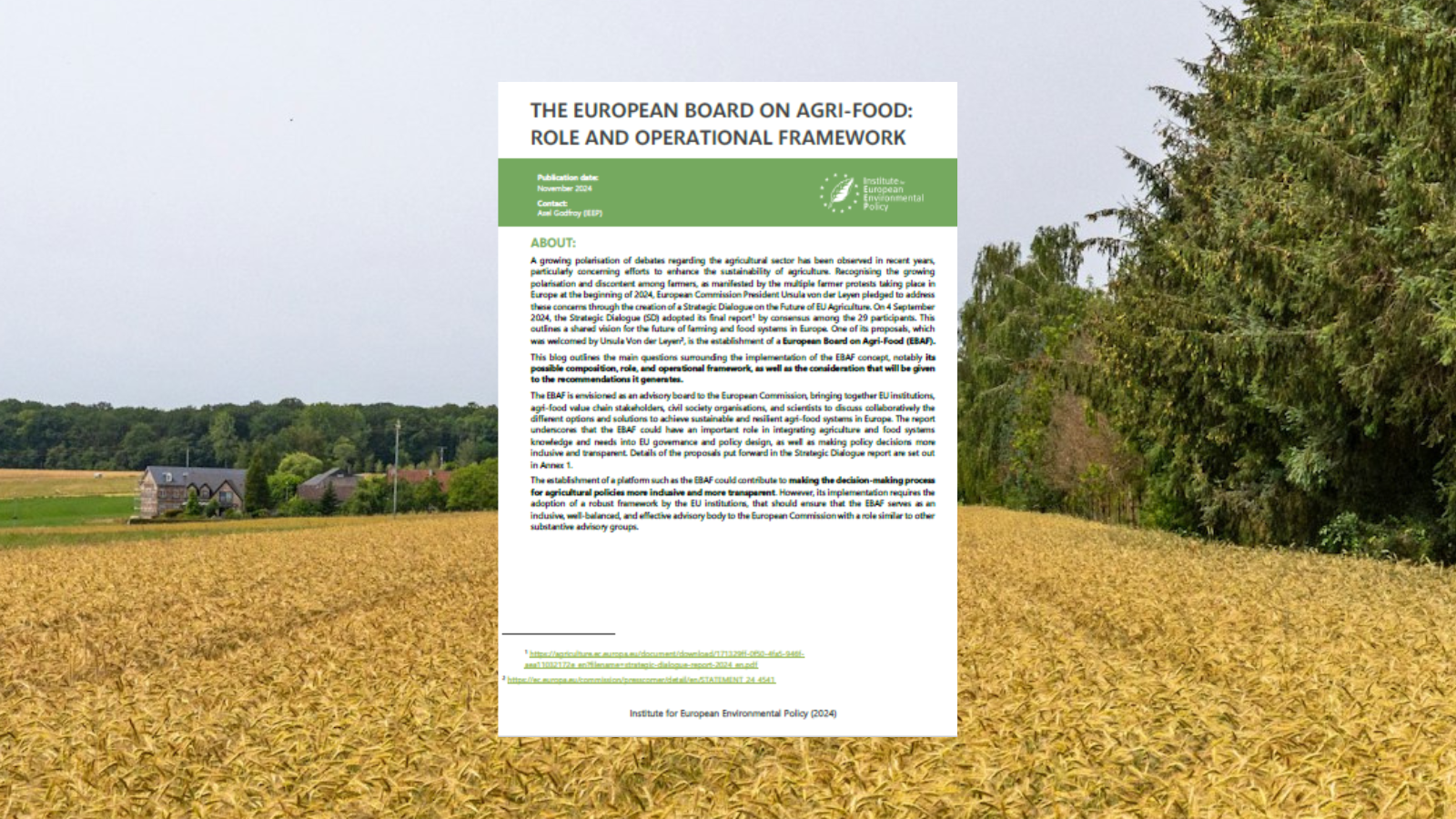Author: Axel Godfroy
Recognising the growing polarisation and discontent among farmers, as manifested by the multiple farmer protests taking place in Europe at the beginning of 2024, European Commission President Ursula von der Leyen pledged to address these concerns through the creation of a Strategic Dialogue on the Future of EU Agriculture. On 4 September 2024, the Strategic Dialogue (SD) adopted its final report by consensus among the 29 participants. This outlines a shared vision for the future of farming and food systems in Europe. One of its proposals, which was welcomed by Ursula Von der Leyen, is the establishment of a European Board on Agri-Food (EBAF).
The EBAF is envisioned as an advisory board to the European Commission, bringing together EU institutions, agri-food value chain stakeholders, civil society organisations, and scientists to discuss collaboratively the different options and solutions to achieve sustainable and resilient agri-food systems in Europe.
The establishment of a platform such as the EBAF could contribute to making the decision-making process for agricultural policies more inclusive and more transparent. However, its implementation requires the adoption of a robust framework by the EU institutions, that should ensure that the EBAF serves as an inclusive, well-balanced, and effective advisory body to the European Commission with a role similar to other substantive advisory groups. This framework should address several key matters, including fair representation and equal participation of the members, as well as clear governance and a defined articulation between the EBAF and other consultation processes.
This analysis outlines the main questions surrounding the implementation of the EBAF concept, notably its possible composition, role, and operational framework, as well as the consideration that will be given to the recommendations it generates.
Photo by Martijn Baudoin on Unsplash

